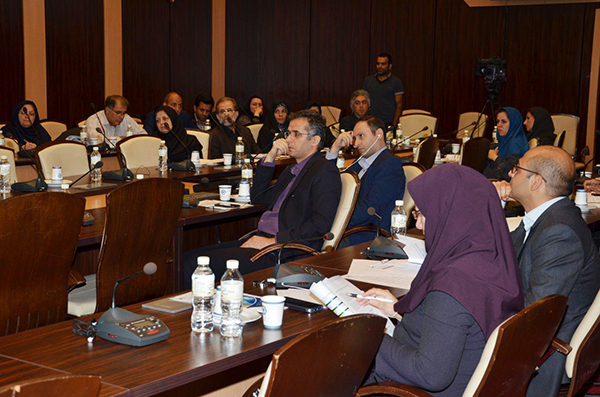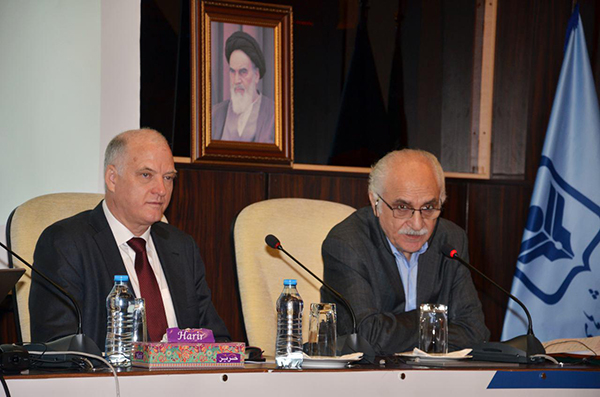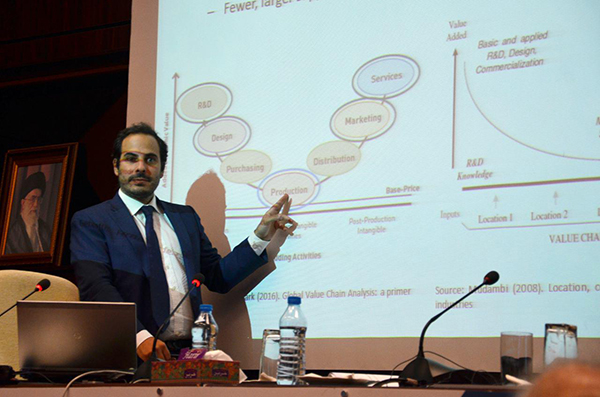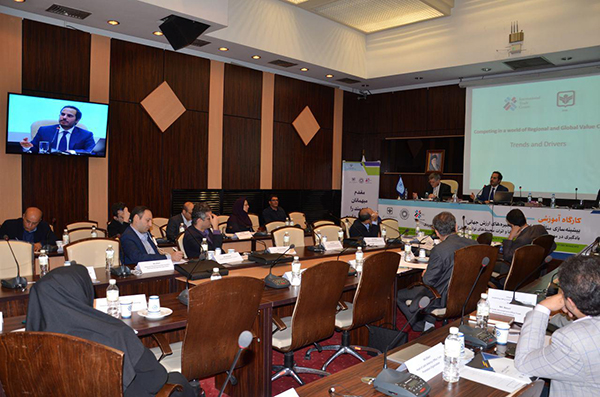Restructuring Trade Policies
Institute for Trade Studies and Research (ITSR), International Trade Center (ITC) and Trade Promotion Organization of Iran (TPO), jointly held a forum on studying risks and benefits of participating in global value chains and the existing opportunities for Iranian industries, on September 18th and 19th of 2017.
High level officials from TPO, ITSR, Planning and Budgeting Organization, Ministry of Finance and Ministry of Industry, Mine and Trade participated in this two-day event. Andres Aeroe, Director of Division of Enterprises and Institutions in ITC, Hernan Manson from Enterprise and Institutions Division of ITC, Dr. Owen Skae of Rhodes Business School in South Africa and Ajmal Abul Samad from, Center on Globalization, Governance & Competitiveness of Duke University provided case studies, lectures and their insights at this event.
Global value chains (GVCs) have gained prominence in the research agendas of policy institutions and academics devoted to the study of international trade and economy. Even more important, GVCs gained a central place at the negotiating tables of the main international economic forums held during 2013. International production, trade and investments are increasingly organized within so-called global value chains (GVCs) where the different stages of the production process are located across different countries. Globalization motivates companies to restructure their operations internationally through outsourcing and offshoring of activities. Firms try to optimize their production processes by locating the various stages across different sites. The past decades have witnessed a strong trend towards the international dispersion of value chain activities such as design, production, marketing, distribution, etc. This emergence of GVCs challenges conventional wisdom on how we look at economic globalization and in particular, the policies that we develop around it.
Discussions in the forum mainly revolved around Iranian industries in different sectors; how they can participate in regional and global value chains more actively, and how they could be enabled to move up in these value chains, to add more value.
In this manner, industrial policies of Thailand, Latin America and South Africa were extensively analyzed. One of the characteristics of the Latin America’s industrial policies was the use of public-private alliance councils (PPAs) to help guide their development and implementation. The deployment of public-private dialogue and related problem solving is considered an essential component of modern industrial policies. However, to be effective councils must be well governed.
Risk is inherent to the pursuit of opportunity. The forum also surveyed the recent experiences and looked at the risks and opportunities firms and their workers face in the global value chains. First, it examined the risk-sharing mechanisms that firms provide from the national and global perspectives; second, it took a closer look at the new opportunities and challenges for firms and individuals in the global arena; third, it discussed the role of economic upgrading and social upgrading; and finally it shed light on how the government can help people manage risks and reap the benefits in the participation of global value chains.
The forum ended by a participatory practice, in which high level officials developed policies and discussed challenged revolving around participation of Iranian enterprises in regional value chains in petrochemical, steel and tourism industries.






